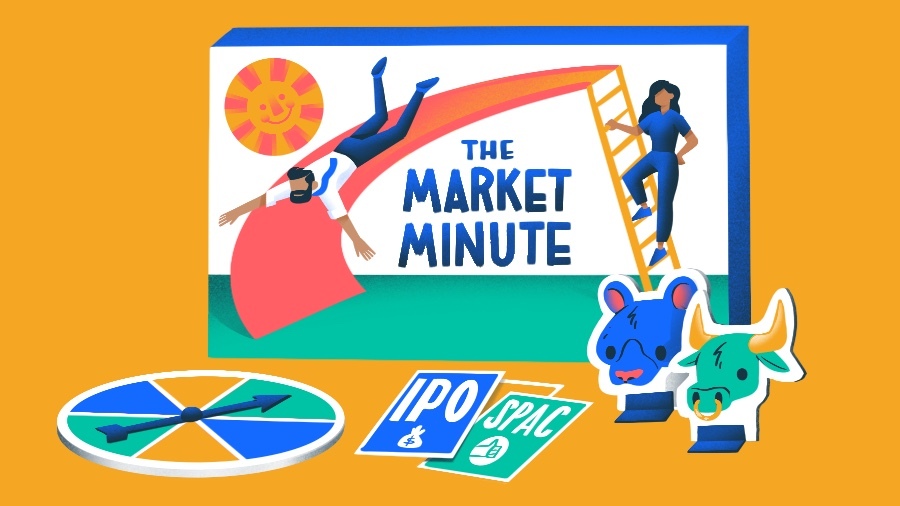If you read about SPACs as much as I do, you’ve probably seen the mention of PIPE deals whenever one of these blank-check mergers is announced.
Subscribe to the Crunchbase Daily
PIPE deals are nothing new, but they’re an area of the SPAC process we haven’t covered very much in this column. And after I had a very interesting conversation about PIPE deals with an investor, I figured we’d tackled PIPE deals and how they relate to SPACs this week.
PIPE stands for private investment in public equity and refers to deals in which a private investor buys stock of a publicly traded company. A deal like this essentially is another capital raise, and has commonly become a part of the SPAC transaction — though they weren’t created for that purpose.
A PIPE deal is a way, in conjunction with a SPAC, to raise money for a company going public, according to Bryan Koslow, the founder of investment advisory firm Clarus Group.
“You have traditional IPOs, you’ll see shares getting allocated to institutions and high-net-worth individuals as a way to thank them for their business or to ensure future business,” Koslow said. “With PIPE deals they’re similar, but they’re not available to your mainstreet investor or your mom-and-pop investors.”
PIPE deals allow accredited institutional investors to get in on the deal at a below-market price, Koslow said.
In a SPAC merger, the acquirer and the target company typically agree to a minimum cash flow, and that amount is usually more than what’s held in the SPAC’s trust, which is why a company then goes out for a PIPE deal, according to Alex Fayette, a principal investor at ACME Capital.
PIPE deals have just about become standard with a SPAC deal, and they’ve become something of a way to validate a deal by blue-chip investors.
“It’s some stamp of approval of, ‘This is a good deal, this is a good business’…there’s that validating point,” Fayette said. “But the other point, similar to IPOs, is you’re typically trying to optimize for partners who have a long-term investment vision of the company.”
According to SPAC Insider, 349 SPAC IPOs have taken place in 2021 so far, and they’ve generated more than $108 billion in gross proceeds. SPAC activity in the first half of 2021 has already surpassed 2020, which was a record-year for SPACs and essentially put the method of going public on the map.
Increasingly, SPACs are showing up to merger talks with a PIPE deal already “pre-baked,” according to Fayette. It’s often because there was more interest in the SPAC IPO than the amount of money the SPAC was aiming to raise, so the management team had conversations with investors who didn’t make it into the SPAC IPO to come into the PIPE deal. It’s not the norm for SPACs to have the PIPE deal pre-baked, he noted, but it is happening more frequently.
And companies typically want prestigious investors, like the T. Rowe Price(s) and Fidelity Investment(s) of the world, as investors in their PIPE deal.
“You see sometimes SPACs come to the table and maybe they’re fighting over a company, there’s more than one SPAC offer for a company and one of them may say….
‘We already have most of the PIPE or all of the PIPE pre-baked, ready to go,’” Fayette said. “And that takes a lot of risk off the table.”
In a lot of ways, the process of raising money for a PIPE deal is similar to an IPO roadshow orchestrated by an investment bank. Company management pitches investors, though often joined by someone from the SPAC management team.
But a key difference in the allocation process between a PIPE deal and an IPO is that with an IPO the banks typically build a book of interest to determine pricing, whereas with a SPAC, the price is more or less set by the merger, Fayette said.
Another important difference is that PIPE deals are only open to institutional investors, which has drawn some scrutiny from the public, Koslow said.
“Some of this speaks to the general wealth inequality we’re hearing a lot about,” Koslow said. “Where it feels like the rich are getting richer and mainstreet is getting left behind.”
Illustration: Dom Guzman

Stay up to date with recent funding rounds, acquisitions, and more with the Crunchbase Daily.


![Illustration of a guy watering plants with a blocked hose - Global [Dom Guzman]](https://news.crunchbase.com/wp-content/uploads/quarterly-global-3-300x168.jpg)
67.1K Followers